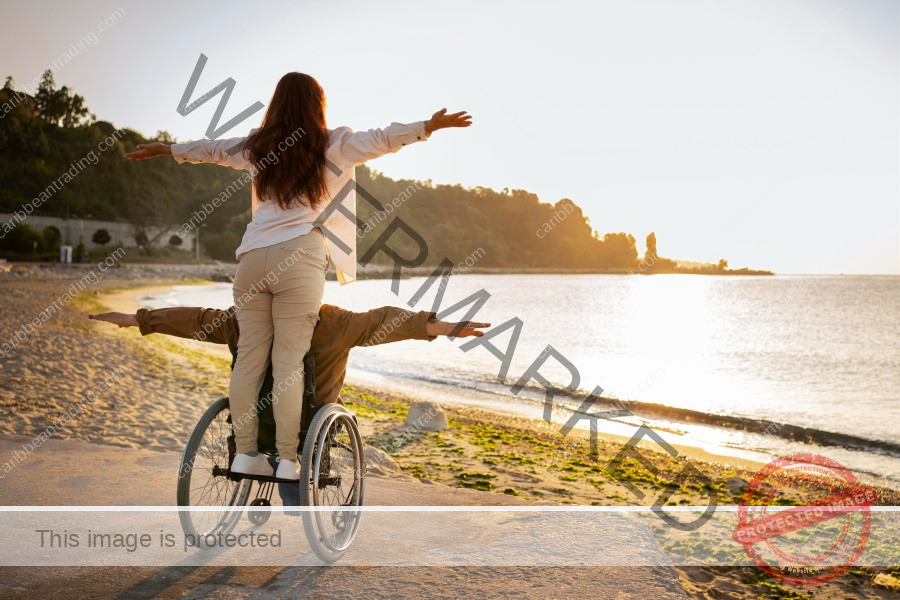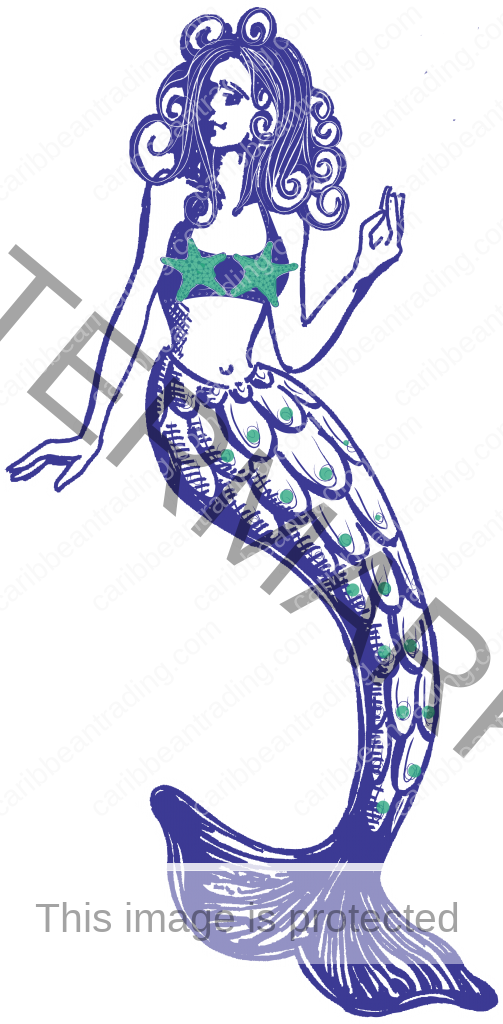Caribbean Travel Tips
How to Enjoy the Caribbean If You Have Mobility Issues
The Caribbean is often imagined as a paradise reserved for the able-bodied—filled with beaches, hiking trails, and bustling marketplaces. But this stereotype overlooks a growing reality: the Caribbean is becoming increasingly inclusive. With greater awareness of accessibility and improved infrastructure across several destinations, travelers with mobility challenges can now experience the beauty, culture, and relaxation the region offers. Whether you’re a senior with limited movement, recovering from surgery, or living with a disability, the Caribbean can be both welcoming and enjoyable. In this article, we’ll explore practical travel tips, accessible destinations, and creative ways to enjoy your stay—even without leaving your hotel room.
Planning Your Accessible Caribbean Trip
A great trip starts with great planning, and when you have mobility issues, this phase becomes even more important. The first step is choosing a destination that actively supports accessible tourism. Some islands, like Aruba, Puerto Rico, and the U.S. Virgin Islands, have made significant strides in accommodating travelers with disabilities. These destinations offer accessible hotels, transportation options, and public spaces equipped with ramps, elevators, and adapted restrooms.
Before booking, contact the hotel or resort directly to ask detailed questions about their facilities. Are there wheelchair-friendly rooms with roll-in showers? Are elevators available? Do restaurants have accessible seating? Some properties even offer beach wheelchairs, pool lifts, and customized excursions.
It’s also wise to consider the season. The Caribbean can be particularly crowded during the winter high season, which might make mobility more difficult in busy areas. Traveling in the shoulder months (April to June or September to November) can give you a more relaxed experience with better access to services.
Getting There: Flights and Transfers
Flying with a mobility issue requires thoughtful preparation. When booking your flight, notify the airline of your specific needs at least 48 hours in advance. Most airlines offer wheelchair assistance from check-in to boarding and disembarking. If you use a mobility aid, be sure to clarify whether it can be stored in the cabin or needs to be checked.
Upon arrival, having a pre-arranged accessible transfer can make a world of difference. Some islands have transportation companies that offer vans with ramps or lifts. This ensures a smooth, comfortable transition from the airport to your hotel without unnecessary stress or delays.
Where to Stay: Accessible Accommodation Options
Choosing the right hotel is key to enjoying your Caribbean vacation. More properties are beginning to offer ADA-compliant rooms or local equivalents, even if they don’t always advertise it clearly. In addition to physical accessibility, consider the proximity of the hotel to essential services such as pharmacies, medical clinics, and accessible attractions.
All-inclusive resorts can be an excellent option for travelers with mobility concerns. They reduce the need to leave the property frequently and offer a wide range of accessible services and amenities in one place—pools with lifts, paved pathways, elevators, and onsite entertainment.
Some boutique hotels and villas also cater to travelers with limited mobility, especially if you contact them in advance to make arrangements. Look for options with flat terrain, grab bars in bathrooms, and minimal steps or barriers.
Accessible Beaches and Nature
Enjoying the natural beauty of the Caribbean is entirely possible, even if you face mobility challenges. Some islands are better equipped than others, but there are a few that stand out. Aruba’s Eagle Beach, for instance, features beach mats that allow wheelchair users to get closer to the ocean. In Barbados, the Brandon’s Beach area offers beach wheelchairs and accessible restrooms.
Puerto Rico’s Luquillo Beach and several locations in San Juan have wheelchair access ramps and paved boardwalks, allowing travelers to enjoy the sun and sea without difficulty. In the U.S. Virgin Islands, Magens Bay in St. Thomas is known for its accessible facilities, including water-friendly chairs and accessible restrooms.
For nature lovers, some national parks and botanical gardens have created paved trails and viewing platforms designed for all levels of mobility. Look for nature reserves that clearly state their accessibility features online and don’t hesitate to reach out directly to confirm details.
Cruises: A Floating Solution
If mobility is a concern but you still want to explore multiple islands, a Caribbean cruise can be a game-changer. Modern cruise ships are often equipped with excellent accessibility features, including wheelchair-accessible cabins, automatic doors, elevators, and accessible theaters and restaurants.
Major cruise lines like Royal Caribbean, Carnival, and Celebrity Cruises provide detailed information about accessibility options. Many even offer specialized shore excursions designed for limited mobility guests—complete with accessible transport and tour guides trained to assist with mobility needs.
However, it’s important to research ports of call beforehand. Not all ports are equally accessible, and some require tender boats that might pose challenges. Your cruise line’s accessibility department can provide detailed guidance on which excursions and ports are most suitable for your needs.
Accessible Activities and Experiences
There’s more to the Caribbean than just the beach. Many attractions have made it a priority to offer inclusive experiences. Museums, cultural centers, rum distilleries, and historical landmarks often have paved paths, ramps, and elevators. In cities like San Juan, Old Havana, and Willemstad, guided city tours in accessible vans allow you to explore rich histories without physical strain.
For those interested in wellness, several resorts and spas offer therapeutic massage services, yoga sessions for all ability levels, and hydrotherapy pools with lifts. These activities not only offer relaxation but can also be beneficial for people with chronic pain or reduced mobility.
Water activities aren’t off-limits either. Adaptive snorkeling and scuba programs are available on some islands. These programs are led by trained instructors and include specially designed flotation devices and entry methods to ensure safety and enjoyment.
Enjoying the Caribbean Without Leaving Your Room
Traveling doesn’t always have to mean constant movement. If mobility challenges make it hard to venture out daily, there are still plenty of ways to enjoy your Caribbean stay right from your hotel room or balcony. Many resorts offer in-room dining, private entertainment, and on-demand services like spa treatments and cocktail-making classes.
A quiet evening watching the sunset over the ocean, reading a good book with the sound of waves in the background, or enjoying local cuisine delivered to your door can be just as memorable as a day trip. In-room accessibility upgrades such as wide doorways, grab bars, and flat thresholds make it easier to rest comfortably and independently.
Try Online Entertainment Options
If mobility limits your ability to participate in on-site entertainment or excursions, the digital world offers engaging alternatives. Whether you’re relaxing during the heat of the day or taking a break from activity, online games and platforms provide both fun and distraction.
One exciting option is trying your luck at a no wagering casino. These platforms let you enjoy online games without the commitment of traditional wagering requirements, making them an easygoing choice for entertainment. With simple sign-ups and games designed for mobile or tablet use, they’re accessible from the comfort of your lounge chair or hotel bed.
Of course, entertainment can also include streaming Caribbean documentaries, taking virtual cooking classes, or connecting with locals via cultural apps and travel forums. The key is finding what relaxes or stimulates your mind while adapting to your physical needs.
Traveling With Support: Companions and Services
You don’t have to go it alone. Traveling with a family member or caregiver can ease logistical stress and allow you to focus on enjoying your trip. Many hotels and tour providers also offer assistance services, such as renting mobility aids, hiring private aides for daily tasks, or even booking accessible guides for excursions.
Travel insurance is another crucial consideration. Look for policies that include coverage for pre-existing conditions, emergency medical care, and trip interruptions due to health concerns. Having that safety net offers peace of mind for you and your travel companions.
Conclusion: The Caribbean Is for Everyone
The Caribbean is not only a dream destination for the able-bodied—it’s a region that, increasingly, welcomes all kinds of travelers. Whether you’re soaking up the sun on an accessible beach, exploring local cuisine from your resort’s restaurant, or enjoying an online no wagering casino game from your balcony, there are countless ways to experience the magic of the Caribbean.
Mobility challenges don’t have to mean missing out. With the right planning, a sense of adventure, and a few adjustments, you can create beautiful, unforgettable moments in one of the most stunning regions of the world. The Caribbean is for everyone—and that includes you.







